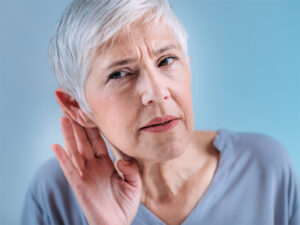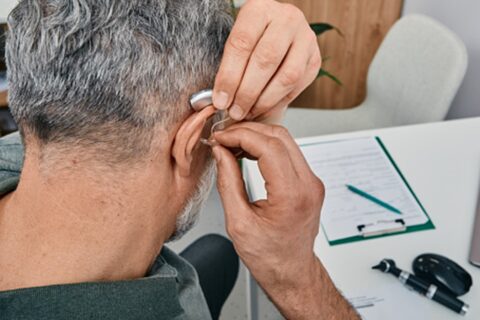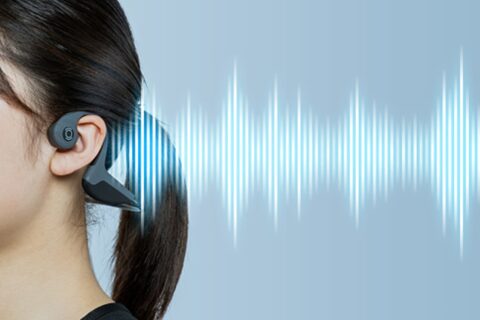Aging and Hearing Loss

Hearing loss can affect anyone of any age, including infants and children. Yet age still continues to be the strongest predictor of hearing loss, with the likelihood of hearing loss increasing as we get older, as illustrated by these statistics from the National Institute on Deafness and Communication Disorders (NIDCD):
- Among adults aged 45-54, 2% have disabling hearing loss
- Among adults aged 55-64, 8.5% have disabling hearing loss
- Among adults aged 65-74, 25% have disabling hearing loss
- Among adults 75 and older, 50% have disabling hearing loss
Age-related hearing loss most often occurs in both ears, affecting them equally. A person may not even realize he or she has diminished hearing ability because age-related hearing loss tends to occur very gradually.
Causes of Age-Related Hearing Loss
Age-related hearing loss is commonly characterized by changes in the inner ear and auditory nerve, a type of hearing loss called sensorineural hearing loss. Sensorineural hearing loss occurs when there is damage to tiny hair cells in the cochlear and/or the auditory nerve. Sound vibrations reach the cochlea, but damaged hair cells can’t translate the sound vibrations into the electrical signals that are transmitted to your brain.
Age-related hearing loss appears to have a hereditary component, as it tends to run in families.
Certain medical conditions, such as high blood pressure and diabetes, and certain medications, such as some chemotherapy drugs are also common causes of age-related hearing loss.
While not necessarily related to aging, exposure to loud noise and contribute to hearing loss.
Noise-Induced Hearing Loss
While we can’t control the natural aging process, we can control our exposure to noise. Noise is measured in decibels (dB). Long or repeated exposure to sounds at or above 85 dB can cause hearing loss by damaging the nerve cells that translate sound waves into sound.
Tips for protecting your hearing include:
- Know which noises are at or above 85 dBA and limit your exposure to them. The Center for Disease Control (CDC) lists common sounds and their noise levels.
- Wear earplugs or other protective devices when exposed to loud noise
- If you can’t reduce the noise or protect yourself from it, move away from it
- Have your hearing tested on a regular basis if you are frequently exposed to loud noise
- Get treatment for ear infections, which can cause permanent damage to the ear if they’re left untreated.
Evaluating Hearing Loss
When you visit the Florida Gulf Coast Hearing Center, your audiologist will perform a thorough ear examination of the entire ear, including the outer ear, ear canal, eardrum, and middle ear to ensure there’s no underlying cause of your hearing loss that might require medical attention. Then you’ll undergo a rigorous diagnostic hearing evaluation to assess the sensitivity of your hearing at different frequencies. Depending on these findings, other tests may be conducted. Your audiologist will then recommend options for treating your hearing loss, including hearing aids. Florida Gulf Coast Hearing Center offers a variety of options to meet your needs and suit your lifestyle.


